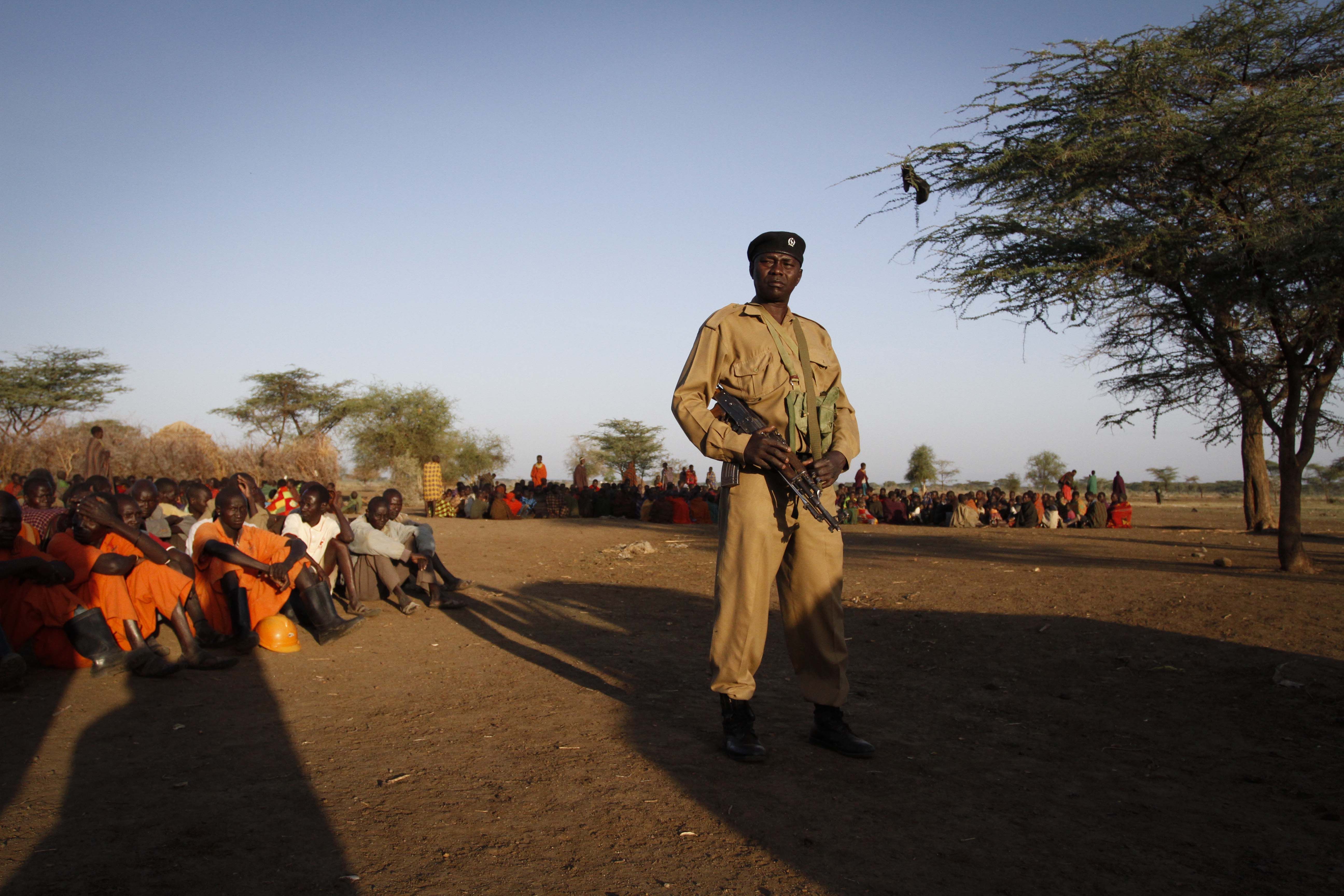After years of brutal disarmament campaigns, the Ugandan government may have succeeded in taking the guns from Karamoja’s warrior nomads. But can they help give them a future?
Johnson Lokurupacoh pulls some photos out of a small plastic pouch with “Girl’s Cotton Panties” printed across it in pink and proudly passes them to me. “That was me when I was one of the fiercest warriors,” he says, pointing at an unsmiling man kneeling over the severed head of a goat. “We were the strongest and best fighters. All the others feared us.”
For most of his adult life, Lokurupacoh—or Retired General Lokurupacoh, as he prefers to be known—commanded a raiding party of around 50 warrior nomads from his native Jie clan. Armed with Kalashnikovs and hunting for cattle, the warriors would walk for days across the desolate plains of Karamoja in northeast Uganda to attack other clans in a vicious spiral of tit-for-tat battles to steal cows.
“The gun was good for us,” admits Lokurupacoh, who says he is 34, but looks much older. “If we could go and raid and we succeeded, then we could get rich and have more animals.” But after being shot twice, seeing twenty of his men get killed and finally giving up his guns in the disarmament campaign by the Ugandan army, Lokurupacoh says he realized it was time to stop raiding.
But there was one major problem. What came next?
Knowing nothing but the gun, the former warriors are almost always illiterate and unskilled. “When the government took our guns away they promised that they would give us something else to do,” Lokurupacoh says. “But they have never delivered on that promise.” Now Lokurupacoh wears a ratty blazer and polo shirt and, along with the thirty surviving warriors he used to have under his command, is trying to set up an association to work with local NGO’s on livelihood
projects for the former fighters.
But life is a struggle. And many worry that if the warriors are left with nothing to do, some may return to their guns.
One such man is Angolemok Luwan. Wearing a counterfeit Liverpool soccer shirt and floral-patterned Chinese blanket in place of a traditional wrap, Luwan, 34, says he was the best marksman in Lokurupacoh’s group. When I ask how many people he killed during the raids, he simply replies “many”.
Like his former commander, Luwan says that now he is thinking only of the future, trying to eke out enough to eat as a subsistence farmer and hoping to see at least some of his eight children go to school. But like the “retired general,” he can't help missing the past.
“When we had guns I had three wives and many cows,” Luwan says. “Now I am poor and they have all left to live with other men.”
